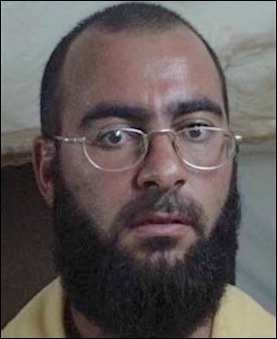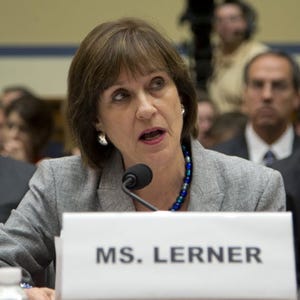ARA News
ERBIL –Extremists of the Islamic State (ISIS) have executed some 300 Iraqi people in Mosul city of the northwestern Nineveh province, an official said on Sunday.
The victims included civilian activists and former members of the Iraqi army and national security.
Official spokesman of the Iraqi army in Nineveh Mahmoud Souraji confirmed the execution of 300 people at the hands of ISIS militants in Mosul over the last few days.
“The terror group has conducted the executions at different locations across Mosul,” he said. “Most of the victims were killed inside the group’s detention centers in the city and its surroundings.”
According to Souraji, who spoke to the local Sumariyah television on Sunday, the majority of those executed were former members of the national security and the Iraqi governmental troops.
“Among them were also a number of media activists who have been detained by the terror group (ISIS) last week in separate raids,” the official said.
Souraji, who based his information on ISIS-linked sources in Mosul, pointed out that the executions were carried out by firing squad.
The victims were reportedly exposed to torture at the hands of foreign jihadis of ISIS before being executed. They have been buried in mass graves in Mosul suburb.

*** While the State Department says much of what is on the internet about Islamic State winning is false, heh….well, killing 300 is significant. Further, what is the leadership of Islamic State doing now….
Abu al-Waleed al-Salafi, whose complete history of Jamaat Ansar al-Islam I have previously translated, has also written Twitter essays on Islamic State leader Abu Bakr al-Baghdadi and compiled lists of names of individuals who came to hold key positions within the ranks of the Islamic State and its leaders. I have translated these essays below.
I do not necessarily vouch for all the information presented here and working out exact datings can be difficult. Nonetheless I have tried to summarize the most important information in a table below. Explanatory notes of my own occur in square brackets. If more data become available I will add them to this post as updates.
Readers should pay particular attention to cases of overlap: that is, where an individual holds more than one leadership position in the organzation. Of interest also is the shift to the establishment of a military council during Abu Bakr al-Baghdadi’s tenure as overall leader.
| Leader |
Abu Mus’ab al-Zarqawi |
Abu Hamza al-Muhajir |
Abu Omar al-Baghdadi |
Abu Bakr al-Baghdadi |
|
| Overall deputy |
Abu Anas al-Shami, Abu Muhammad al-Lubnani, Abu Talha al-Ansari |
|
Abu Abd al-Rahman al-Fellahi
Abu Hamza al-Muhajir |
Hajji Bakr
Abu Muslim al-Turkomani |
Abu Ali al-Anbari [aka Abu Abd al-Rahman al-Afri] |
| Iraq deputy |
|
|
|
Abu Muslim al-Turkomani |
Abu Fatima al-Jiburi |
| Syria deputy |
|
|
|
Abu Ali al-Anbari |
Abu al-Athir al-Absi [previously linked to Syrian Majlis Shura al-Mujahideen & ISIS wali of Aleppo province] |
| War Minister (followed by head of Military Council) |
|
|
Abu Hamza al-Muhajir |
Al-Nasir li-Din Allah Abu Sulayman |
Hajji Bakr
Abu Abd al-Rahman al-Baylawi
Abu Muslim al-Turkomani
Abu Saleh al-Obaidi |
| Hay’at al-Arkan |
|
|
|
Abu Ahmad al-Alwani |
Abu Omar al-Hadithi |
| Media |
Abu Maysara al-Iraqi |
|
Abu Muhammad al-Mashhadani
Abu Abdullah al-Jiburi/Ahmad al-Ta’i |
Abu Muhammad al-Adnani
Abu al-Athir al-Absi/Bandar Sha’alan/Dr. Wa’el al-Rawi |
|
| Security |
Abu Muhammad al-Lubnani |
|
|
Abu Ahmad al-Badri [Syria]
Abu Omar al-Turkomani [Iraq then general] |
Abu Muhannad al-Suwaydawi
Abu Ali al-Anbari
Iyad al-Jumaili |
| Shura Council |
Abu Mus’ab al-Zarqawi |
Abu Abdullah al-Baghdadi
Abu Abd al-Rahman al-Ansari |
|
Abu Arkan al-Ameri |
Abu Bakr al-Khatouni |
Translation of Text by Abu al-Waleed al-Salafi
-Abu Bakr al-Baghdadi is not a person of random pulse but rather has attained knowledge that his peers could not enjoy since he has known well the schools of Sufi thought and the Ikhwan [Muslim Brotherhood] and he was a jihadi before the fall of Baghdad originally.
-Abu Bakr al-Baghdadi has an attractive charisma and a calm composure that is impossible to compare, for you find him speaking in high quality language, attractive calmness and the tone of the one victorious even in the harshest circumstances.
– Psychological analysis of Abu Bakr al-Baghdadi’s personality points to a truth not accepting debate: and it is that he is a personality that does not speak frivolously, but rather he is a man who does not speak a word unless he implements it.
 Abu Muhammad al-Adnani “seeks to inspire zeal in the soul.” Abu Muhammad al-Adnani “seeks to inspire zeal in the soul.”
|
– I have analysed the speeches of Baghdadi and Adnani psychologically more than once, and I found a result: that Adnani’s speech seeks to inspire zeal in the soul, while Baghdadi’s speech seeks to inspire calm.
– Abu Bakr al-Baghdadi, despite the fact that he studied at the hand of the Ikhwan and the Maturidis in university, apart from the fact that he took their thoughts to benefit from them, but he was very different from them in ideology.
– Baghdadi was known for his firmness in the field of da’wa since the days of the Ba’ath in Iraq, and this personality of his enabled him to be a Shari’i official. Then he gradually moved up the ranks till he reached the leadership.
– Baghdadi did not suddenly attain the leadership or in the darkness of oppression, as some journalists narrate, but rather he gradually moved up in a number of positions until he reached the leadership, and this is a well-known matter.
– Baghdadi got involved in jihadi formations since the fall of Baghdad in 2003, and it is not as some reports relate that he was far from the field.
– Baghdadi was a student of Shari’i knowledge, and he combined academic study in university with study at the hands of the mashaykh, and he was outstanding in study of the Qur’an.
 Mugshot of Abu Bakr al-Baghdadi, 2004. Mugshot of Abu Bakr al-Baghdadi, 2004.
|
– Baghdadi was from Jaysh Ahl al-Sunna wa al-Jama’at, then [late 2006] he became a Shari’i official in the Dawlat al-Iraq [Islamic State of Iraq], then courier official, then an official of the Shari’i committees, then subsequently amir of the Dawla.
– Baghdadi sought ‘Ilm [Islamic knowledge] at the hands of mashaykh from many schools of thought, and this was a cause in the formation of his personality, as he sought ‘Ilm at the hands of Abu Abdullah al-Mansur, the amir of Jaysh al-Mujahideen [cf. here]
– Before the fall of Baghdad, Baghdadi had an Islamist direction that no one could condemn, but rather he was given the nickname by those who know him as “The Believer,” not to mention his status as a preacher in one of the mosques of Baghdad.
– Baghdadi operated in the ranks of ‘Ansar al-Tawheed’, one of the formations of Jaysh al-Mujahideen, while Baghdadi’s sister married the amir of this faction [c. 2005]
– Baghdadi entered prison in 2004, and he was imprisoned in Bucca in Basra, south of Iraq. And his entry into prison was a new point in his life that drew up his future subsequently.
– Baghdadi’s charisma made him qualified to be a person of importance inside the prison, for he was the side that would resolve disputes between adversaries, just as he would guide them in prayer.
– Baghdadi’s personality made the situation suitable for there to be a type of connection between military officers and Shari’i leaders in al-Qa’ida, especially after the repentance of these officers from the Ba’ath. READ MUCH MORE HERE.



 Abu Muhammad al-Adnani “seeks to inspire zeal in the soul.”
Abu Muhammad al-Adnani “seeks to inspire zeal in the soul.”
 Mugshot of Abu Bakr al-Baghdadi, 2004.
Mugshot of Abu Bakr al-Baghdadi, 2004.
